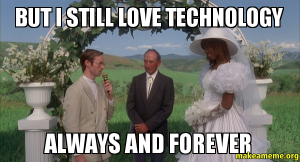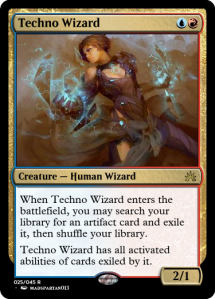 Oh my gosh, I am so helpless when it comes to technology. If it’s more complicated than a lightbulb, I JUST CAN’T.
Oh my gosh, I am so helpless when it comes to technology. If it’s more complicated than a lightbulb, I JUST CAN’T.
But gosh darn it, I’m an adult, and I can buckle down and learn stuff! So when I overhear other writers talking about things and I don’t have a clue what they mean, I crack my knuckles and sit down for a little research. (But I don’t just ask them. Heavens no.) And the thing I kept hearing about was this mysterious triumvirate of power: SEO, metadata, and discoverability.
First, a disclaimer. These things seem to come up most often in conversations with indie authors who are waaaaay more gung-ho about advertising and such than I am. I know that internet traffic and self-advertising are super important, even for a person who hopes to publish more traditionally, but I’m just not there yet in my writerly journey. *crawls into tiny hermit crab shell* But maybe you are there, and you’d like to learn what the heck they’re talking about too! Like all the things I blog about, if you find this post helpful, that’s great! If not, I’m sorry, and please check back next week.
Anyway, so I’m clueless. (Disclaimer two?) So it seems to me that the best place to start is with just defining these things. What follows is a super super super basic primer that is pretty much just me jotting down the things that I’ve learned so far, with the plan to expand on this knowledge base at a later date. Upward and onward, my friends!
SEO stands for ‘search engine optimization’, which phrase is hardly less intimidating than the acronym. When you run an internet search, search engines (like Google, Yahoo, etc) use complicated computerly things (a.k.a. algorithms) to help them decide what to bring up and what order to list those results in. SEO is a website’s way of using this decision making process to float as high to the top as possible. (I know this seems painfully simple to the rest of the universe, but I gotta learn somewhere. Be kind, internets.) So when a person tries to optimize their search engine placement, they do that by making sure their website has the information that matches search engines’ algorithms (keywords, titles, etc) and that their content changes frequently. Bonus points if other websites link to yours, and bonus bonus points if your  site has a good reputation. I’m still figuring out how to go about those last two things, though. (But I realized while writing this blog post that I use terrible titles for SEO. The original title for this post was SEO and Other Technowizardry. Haha, who’s going to Google ‘technowizardry’? So I’m learning, yay!)
site has a good reputation. I’m still figuring out how to go about those last two things, though. (But I realized while writing this blog post that I use terrible titles for SEO. The original title for this post was SEO and Other Technowizardry. Haha, who’s going to Google ‘technowizardry’? So I’m learning, yay!)
Metadata is, at its most broad, data about other data. So not helpful, right? I had to dig a bit to figure this one out, because it wasn’t obvious to me at first exactly what kind of metadata other authors were talking about, and I’m one of those kids in high school algebra who don’t ask questions because I don’t want to look dumb in front of all my peers, even though there’s a pretty good chance they don’t get it either. (Free tip, kids: ask the questions. Your life will be easier and your peers will get over it.) What I gathered is this: metadata is all the information about your book that isn’t the text of the story itself. Things like title, author name, description, blurb, genre, category, tags, and probably a legion of other things I’m missing are all metadata, and help search engines find and bring up your book in response to a search. Likewise, the name of your blog, your pen name, your bio, etc, are all bits of searchable data that can help readers find you. So the point of metadata, like SEO, is to drive technotraffic toward your site/book/etc. This is why it’s so important to have consistent, memorable branding- readers will have a harder time finding me if I split myself between Jill Marcotte and JN Marcotte. Be thoughtful, and be consistent! (For more about branding, check out this post here!)
Discoverability is, very simply put, the relative ease with which a person can find you. The definition seems to then be further split between: how easy it is for a person looking for a book or author to find them; and how easy it is to reach readers who might not necessarily be looking for you specifically, but are interested in the kind of work you do. If you’ve done your footwork on SEO and metadata, it should be fairly easy for an already interested reader to find you, so I’m going to focus a bit more on the second definition. With millions of words of content being published daily, it can be hard to be heard above all the noise, and as a reader, it’s hard to pick your way through waaaay too many options with no clue whether a book’s going to be any good or not. Discoverability tactics include things like SEO and metadata optimization, but then also other things like cultivating a fan base, crafting and placing advertisements, and contacting book reviewers and book rating websites (like Goodreads, Netgalley, etc). Of SEO, metadata, and discoverability, discoverability seems to have the fewest easy answers. This one is hard. *unicorn tears*
Now that you know what the heck we’re dealing with, here are a few more-helpful-than-me resources if you’d like to dig a little deeper!
For SEO:
https://searchengineland.com/guide/what-is-seo This is a nice basic one for beginners, which includes a video with paper people and computers. Whee!
https://www.wiley.com/legacy/wileyblackwell/pdf/SEOforAuthorsLINKSrev.pdf This is actually targeting authors of technical papers, but I think the principles still hold.
For metadata:
http://www.ingramspark.com/blog/book-metadata-tips-for-indie-authors Simple explanations and clear examples about the different aspects of metadata.
https://www.janefriedman.com/optimizing-metadata/ Slightly more in-depth version of the above article.
For discoverability:
http://www.writersdigest.com/resources/5-digital-discoverability-tips Super brief, but good ideas. Seriously, though I didn’t find a whole lot out there as far as concrete discoverability advice. Like I said, this is the hard one.
But maybe you’re better at research than me! Given my ignorance on these subjects, I could be waaaay off in my interpretations of these topics. Be sure to do your own research too, and let me know what you find (please please please). Talk to people, read some articles, take a class. I hope that for you, like me, this can prove a stable launching pad for learning more.
Good luck in the cold, scary world of technology. And until next week, happy writing!
